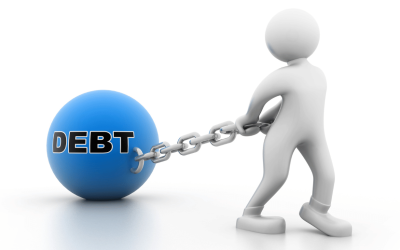How much is too much debt?
Debt can feel inescapable. There is a certain amount of debt that can be expected that warrants planning rather than panic. But how much debt is too much debt and requires you to act?
When does debt become unmanageable?
As a child, do you remember ever climbing a tree higher and higher? Can you remember how climbing up seemed so easy, so you kept going. But as you got higher and looked down, your stomach dropped as you realised you climbed too high. It’s at this point you felt like you didn’t know how to get down again.
Well, the same thing can happen with your debt. You can reach a point where your debt levels are just too high. But by the time you realize it, you don’t know how to get out of debt. That is when your debt can become unmanageable and it’s time to seek help.
There is no magic rand amount that tells you when your debt is too high. Everyone’s threshold is different so you will know when your “debt tree” is too high for you. There will be subtle signs that will guide you to take a different path.
Who can you turn to for debt help?
Premier Debt’s professional debt advisers help South Africans every year to find debt relief programs that work for them. We pride ourselves in being there to help you, even if you just need free advice.
Let’s look at what it means to be in too much debt and what to look out for. So, you know when it’s time to call us to help you get out of your “debt tree”.
4 Warning signs that you are in too much debt
Are you having sleepless nights on a regular basis due to your debt? If so, we are sorry to hear it. Sleepless nights can make your situation more difficult to handle on your own.
But how do you distinguish trouble sleeping due to life’s stresses vs too much debt? If you notice any of these 4 signs, you may be in too much debt.
1. Using one credit facility to pay another
Have you heard of the saying ” rob Peter to pay Paul? That’s what using one credit facility to pay another is. If you use your credit card to pay another credit card or even your loan or clothing accounts, you are not making it. Instead of having enough money in your budget to cover all debt payments, you are only moving money around. If you are moving money around to make payment due dates, it’s a sign you need help. Using debt to pay debt will be expensive and cost you a lot in the long run.
2. Struggling to pay the monthly minimum payment
Not being able to make monthly payments is like climbing your debt tree. You are climbing towards unmanageable debt instead of coping with your finances. To be prudent you should pay at least your minimum payments but if you can it’s wise to pay more. That is why experts say that if you can’t pay more than the minimum payment its already a sign of financial strain.
3. Repeatedly seeking credit increases
When you begin to struggle with debt, you might be tempted to apply for more credit. Problem solved, right? Wrong.
This is only a band-aid solution. As you acquire extra funds, you’re digging yourself deeper and deeper into debt. You’ll likely continue your cycle of debt and start to incur more interest fees.
Regular credit increases can also affect your credit score. Seeking more debt usually is an indication that you have maxed out your credit. That means your debt to credit ratio is high which lowers your credit score. That is generally why people with good credit scores are declined. Only a certain percentage of your income can be used for debt and the credit act prevents lenders from extending more credit. Ideally you want to keep your credit utilization rate to under 30 percent.
When you apply for new credit, you must consent for a credit check. Every credit check on your credit record is recorded and if there are too many in a short time frame it also lowers your score.
Usually seeking a credit increase is a sign of people using credit to supplement income. This can mask their true debt situation.
4. Getting calls from debt collectors
This is the most important sign and biggest indicator that you are in too deep. Receiving collection calls from debt collectors means you have not kept up with your payments. If your payments are behind for months, you have more debt than you can handle. Debt collection calls are an undeniable indication that it’s time to get help.
How Premier Debt can help
We know how intimidating and stressful it can be to acknowledge you need support. You’re not alone. Premier debt is here to help you with debt relief options that will give you peace of mind.
It’s never too early or too late to seek help.
Contact us today for options that will make you feel comfortable.
Complete the form to get started and chat with Judy.



